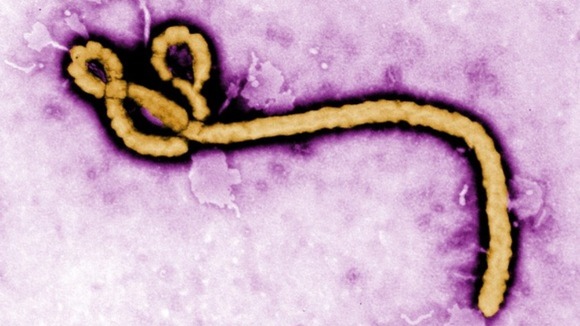What isn't being covered as much is the potential research into Ebola. The CBS news article linked below made its rounds through the Niemann Pick community because it explains how Ebola transfers from individual to individual in fairly non-medical terms.
So why am I writing about it? I've copied the important paragraph below:
"The virus essentially enters human cells by hitching a ride with certain proteins. The Ebola virus binds to the host cell's outer membrane, then part of the host cell membrane envelops the virus. This creates a bubble of sorts, which enables the virus to enter into the cell. The virus escapes destruction by exploiting the cell's regeneration process. One protein the virus exploits in known as the Niemann-Picks CI (NPC1), which helps transport cholesterol within a cell. In a mouse study, Chandran and his team discovered that if cells do not make this protein -- due to a mutation -- they are immune to Ebola."
http://www.cbsnews.com/news/how-soon-can-a-vaccine-or-treatment-stop-ebola-in-its-tracks/
Now I don't know if ethically it would be good to change the cell and "give" people NPC1. We know that NPC1 is a 100% fatal diagnosis. Ebola isn't. A great many people do die from Ebola but not all do.
However, the research that is being generated by looking for an Ebola vaccine may unknowingly help the NPC1 community.
About 3 years ago, there was an article about how NPC1 patients are immune to Ebola. This abstract is quite scientific.
The information below was posted to the NNPDF website at the time:
"Ebola Research finds Link to NPC1 Protein
Two recent publications from researchers based at MIT and Harvard report that the NPC1 protein is an essential factor in allowing infection by the deadly Ebola virus. The MIT team lead by Brummelkamp et al. used a genetic screen to identify mutant cells that were unable to support Ebola infection. They identified a panel of genes related to uptake into endosomes, most notably NPC1. Cunningham and colleagues at Harvard used small molecule inhibitors to prevent Ebola infection, and in collaboration with Dan Ory at Washington University, demonstrated that the inhibitors were disrupting interaction between a viral protein and NPC1. These findings lay the groundwork for development of new drugs to prevent Ebola infection. The studies will spur further interest in the NPC1 protein, and could lead to new insights into its function.
Links to the articles appear below:









0 comments:
Post a Comment
I love hearing from my readers. Please leave a comment to let me know you stopped by. :-)